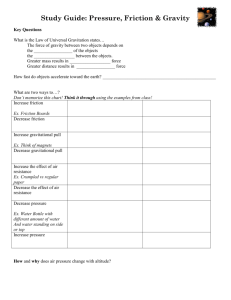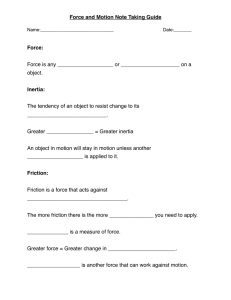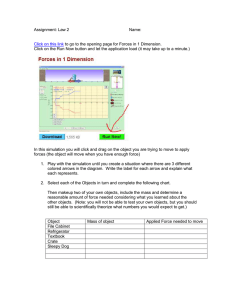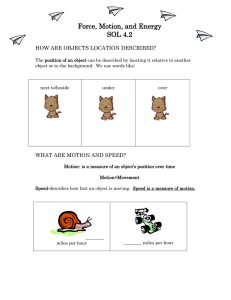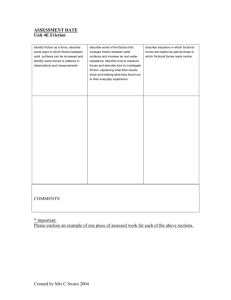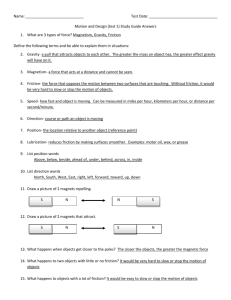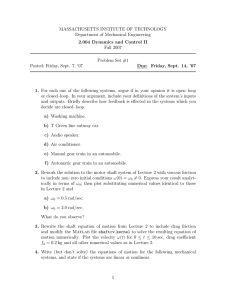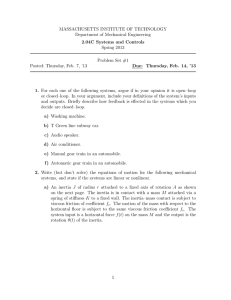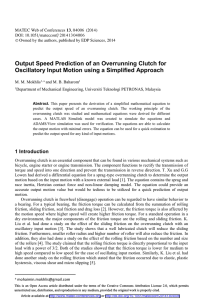Ladies and gentlemen, Sir Isaac Newton's First Law of
advertisement
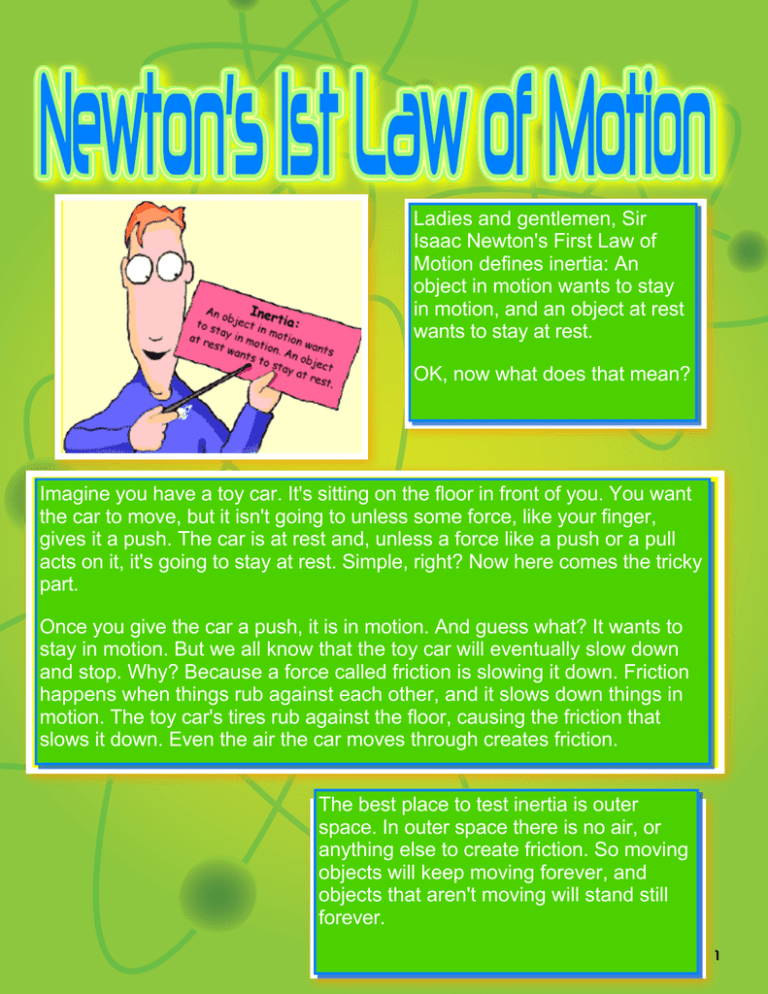
Ladies and gentlemen, Sir Isaac Newton's First Law of Motion defines inertia: An object in motion wants to stay in motion, and an object at rest wants to stay at rest. OK, now what does that mean? Imagine you have a toy car. It's sitting on the floor in front of you. You want the car to move, but it isn't going to unless some force, like your finger, gives it a push. The car is at rest and, unless a force like a push or a pull acts on it, it's going to stay at rest. Simple, right? Now here comes the tricky part. Once you give the car a push, it is in motion. And guess what? It wants to stay in motion. But we all know that the toy car will eventually slow down and stop. Why? Because a force called friction is slowing it down. Friction happens when things rub against each other, and it slows down things in motion. The toy car's tires rub against the floor, causing the friction that slows it down. Even the air the car moves through creates friction. The best place to test inertia is outer space. In outer space there is no air, or anything else to create friction. So moving objects will keep moving forever, and objects that aren't moving will stand still forever. 1
